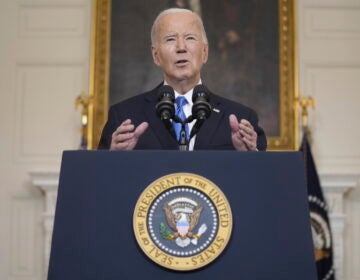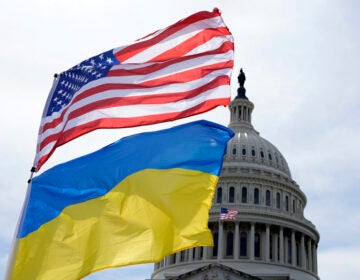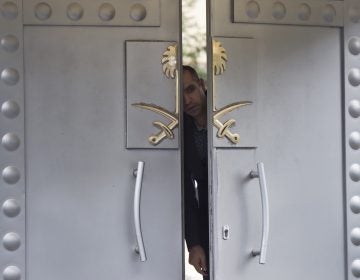U.S. drones ‘raining death on people’ in Yemen, Saudi journalist says
Safa Al Ahmad has produced hard-hitting documentaries about unrest in Saudi Arabia and the war in Yemen. She has harsh words for the United States, too.
Listen 0:50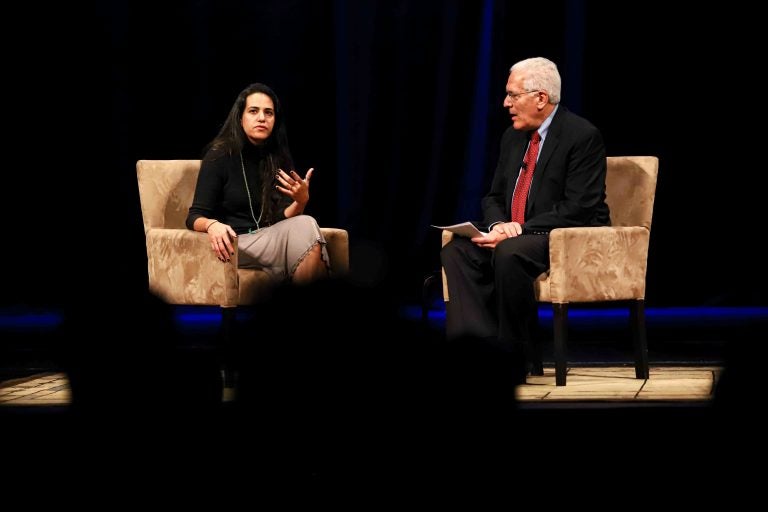
Safa Al Ahmad speaks with UD's Ralph Begleiter on Wednesday night. (Saquan Stimpson for WHYY)
Safa Al Ahmad lives out of a suitcase.
She doesn’t know when she will return to her native Saudi Arabia.
Or even if she will ever go home.
The journalist hasn’t been inside the kingdom since she exposed how its repressive regime quashed protests in the 2014 documentary, “Saudi’s Secret Uprising.”
It’s a self-imposed exile, based on her fears of being arrested or worse after the Saudi government accused her of advocating and aiding terrorism for reporting on a three-year uprising spurred by the Arab Spring of 2011.
Her apprehension has only been magnified since her friend, Saudi journalist Jamal Khashoggi, was murdered and dismembered after being invited to the Saudi consulate in Istanbul a year ago.
Al Ahmad spoke with WHYY Wednesday night about the situation in her native country and its relationship with the United States after a 90-minute discussion at the University of Delaware with professor emeritus Ralph Begleiter. Her talk was sponsored by two free-speech organizations — PEN America and Index on Censorship.
She recalled that while in London editing and completing the 2014 film on Saudi unrest, she attempted to speak with government officials. They didn’t only resist, they leveled their own allegations, she said.
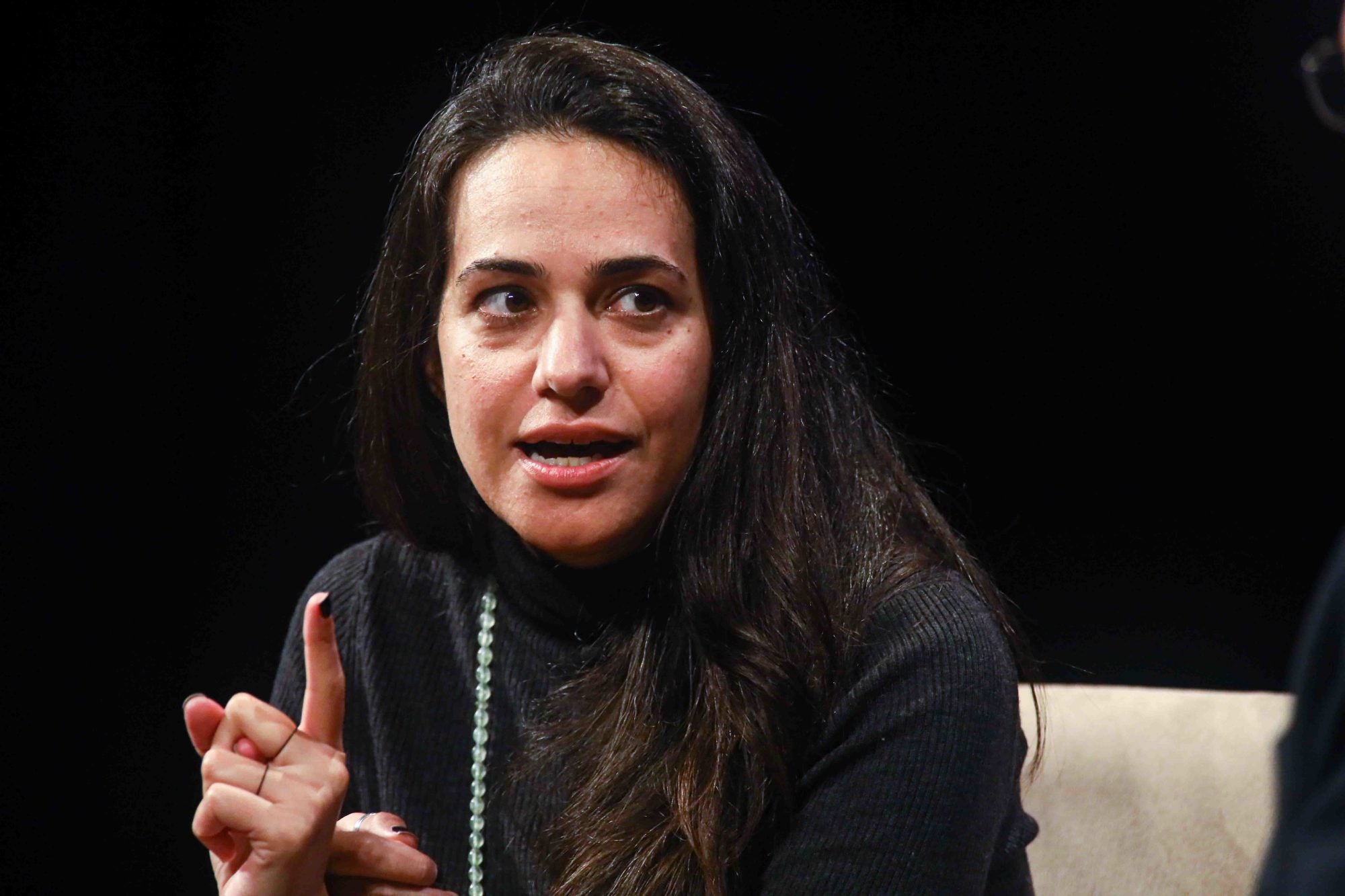
“So they were really angry and sent a letter to the BBC naming all my crimes as a Saudi citizen, which means to me that they don’t actually understand journalism and they don’t even care,” Al Ahmad said.
“And they were really upset because there was a narrative that had been put out that wasn’t the government narrative,” she added. “They don’t like that pushback.”
Though there is no free press in Saudi Arabia, Al Ahmad believes that as a citizen “it’s my responsibility to be critical, and it’s my responsibility when they are committing massive injustices not only domestically inside Saudi Arabia but in a country I love, Yemen. And they are decimating the entire country in the pretext of fighting the Iranians.”
Since 2015, Al Ahmad has produced, directed and appeared in three documentaries for the PBS investigative news program “Frontline” about the civil war in Yemen. Saudi Arabia and its ally, the United States, is assisting Yemen’s government.
Her 2019 film, “Targeting Yemen,” focused on American drone strikes and Special Forces raids. She visited villages where children were killed that have been reduced to rubble and said she feared she might die at any moment because attacks were so frequent.
“They’re raining death on people,’’ she said of the drone-fired bombs, which fuel resentment against natives who weren’t inclined to oppose the Yemeni government, the Saudis, or the Americans.
“The civilians get angrier and angrier at you, and then you create more extremists because they feel that nobody else is listening to them,’’ she said. “And I’m not saying the majority of the people are doing that, but enough of the minority of these people are gonna be angry and have blowback.”
Just as Al Ahmad criticizes the Saudi regime, she has harsh words for actions by the American military and White House under Presidents Barack Obama and Donald Trump.
“The American government is directly complicit in this war,’’ she said. “It’s not something that’s happening disconnected from the taxpayer here. You are responsible as a taxpayer here for the disaster that’s happening in Yemen, the American so-called counterterrorism war.”
She said Khashoggi’s murder shocked and stunned her, leading her to recalculate her own potential risks.
“None of us really thought that the Saudi government would do this,’’ she said. “Even the day when we heard he had gone into the consulate and didn’t come out, I thought and a lot of my friends thought that they had drugged him and managed to bring him back to Saudi Arabia. We thought that would be the worst-case scenario.
“We really could not imagine the amount of gruesome details that would come out about how they premeditated the killing. For me, what mystifies me about the whole thing is why they were they so scared of Jamal that they thought this was the only thing they could do.”
WHYY is your source for fact-based, in-depth journalism and information. As a nonprofit organization, we rely on financial support from readers like you. Please give today.



